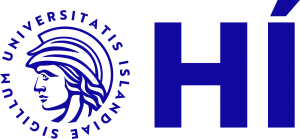ASCS is an interdisciplinary research group focusing on enhanced sustainability, transparency and circularity in supply chains
Vision
- to foster a dynamic interdisciplinary research group within the School of Engineering and Natural Sciences with a focus on sustainable and transparent supply chain systems.
Key research areas are on supply systems with the aim to better understand the dynamics of food value chains through empirical studies and qualitative research.
The research motivates interdisciplinary applied science in the area of supply chain systems for enhanced safety, quality and transparency (traceability) of products for the consumers. The group integrates various disciplines like food science, engineering, social sciences, economics and environmental sciences with a strong emphasis on project management.
Sustainable use of resources and efficient supply chains is a concern to all stakeholders. The research has a focus on solutions to enhance sustainable production, minimize loss and reduce waste, efficient use of energy, transparency and enhanced sustainability.
The research group participates in diverse research projects that are funded by external research grants, e.g. national, Nordic and European Framework Programs. The research outputs are published in scientific journals, trade journals and communicated in conferences and workshops.
One of the key impacts is the creation of dynamic environment to foster collaboration with graduate students and motivate innovative ideas to be exploited by spin off entrepreneur companies. The research group has strong collaborations with the relevant industries in various projects.
Mission
- Create opportunities for domestic and international collaboration by employing existing expertise to secure external research funding,
- Employ staff and students with diverse background and interest in the interdisciplinary approach of the research group,
- Provide a dynamic environment for science excellence managed by professional project management procedures and experienced staff,
- Disseminate result of research through scientific publications in form of articles, books and book chapters,
- Create and write articles within the research area in newspapers, magazines and using social media and website for broad communication
- Create educational material and manage targeted graduate courses,
- Provide the industry with an interactive gateway to applied science collaborations.
